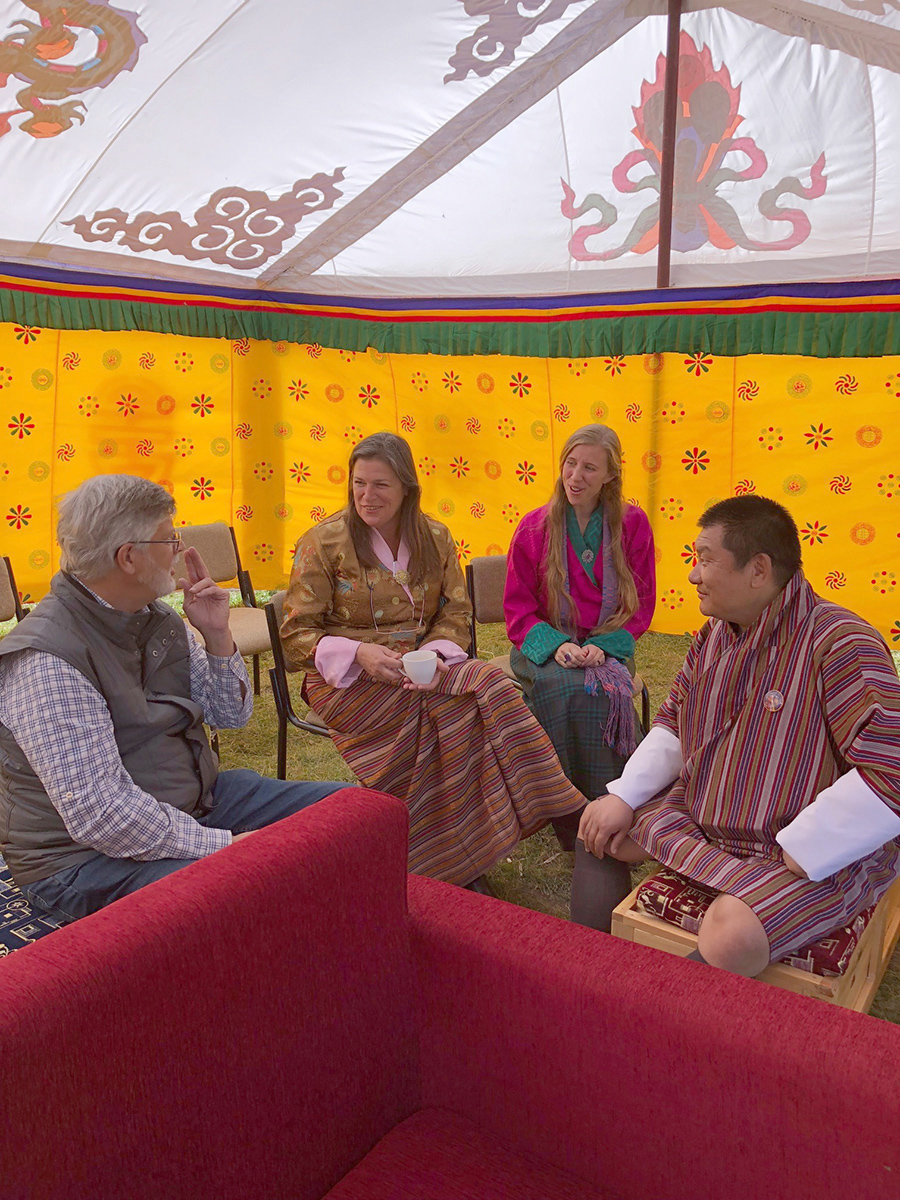
By Donna Gray
Call it synchronicity. A Colorado Mountain College faculty member’s trip to Bhutan two years ago has morphed into a new opportunity for the college to go global.
CMC recently became a member of the international Mountain Partnership organization. Under the aegis of the Food and Agriculture Organization of the United Nations, it is dedicated to preserving mountain communities through sustainable practices.
In 2016 Lorraine Miller, an English as a second language instructor and developmental education faculty at Colorado Mountain College Aspen, took her sabbatical in Bhutan. The mountainous kingdom is east of Nepal and surrounded by India.
Through an arrangement with the Aspen International Mountain Foundation, Miller was immersed in an unusual language learning program. It gave her a taste of what it was like for her own students. “I’m a language teacher,” she said. “In Bhutan I walked in the shoes of a language learner. I didn’t know the language or the alphabet.”
Two years later, the AIMF was invited to attend Bhutan’s seventh international Gross National Happiness conference, “GNH of Business.” And CMC – represented by Miller and Dr. Mercedes Quesada-Embid, professor of sustainability studies – was invited to attend.
Rooted in Buddhist philosophy, the concept of Gross National Happiness holds that government should measure its success by the happiness of its people, not just through tangible economic advancement. Equally important is the spiritual and cultural growth of the population and environmental protection. Bhutan is governed by all four principles.
Well-being valued
The focus of the Gross National Happiness of Business conference was to promote those values in business practices in which society’s well-being is valued alongside profit and companies commit to responsible behavior.
As a result of CMC’s presence at the conference and its relationship with AIMF, the college was invited to join the Mountain Partnership. “It’s an honor,” Miller said. “Only a few colleges are members.”
There is a strong synergy between the visions of both Colorado Mountain College and the Mountain Partnership. “We use nearly identical words in terms of our commitment to our mountain communities,” said Dr. Kathryn Regjo, vice president and campus dean of Colorado Mountain College Vail Valley in Edwards. Those words and phrases include thoughtful and sustainable development, and economic and social vitality, she said.
Sustainability is a core value of Colorado Mountain College. The college is one of only nine postsecondary institutions in the nation and the only institution in the state to receive the 2017 U.S. Department of Education Green Ribbon Schools Postsecondary Sustainability award. In addition to offering a bachelor’s degree in sustainability studies, CMC is a 2009 signatory of the American College & University Presidents’ Climate Commitment, and through its sustainability action plan has set a goal to be carbon-neutral by 2050.
The new relationship with the U.N. partnership is set to cast the college onto an even broader stage. Through a connection with the Bhutan Trust for Environmental Conservation, its relationship with AIMF and its membership in the Mountain Partnership, Colorado Mountain College is working to develop an exchange program with Bhutan that will advance education for forest rangers in that country in mountain and wilderness medical response, high-altitude rescue and backcountry navigation.
Through the Mountain Partnership, CMC hopes to bring this programming to other countries as well, Miller said. “We learn so much when we broaden our cultural horizons, when we get out of our own countries and see the forest for the trees,” she said.
Regjo noted that when considering expansion to other countries, participants in these “train the trainer” courses would be able to take their knowledge back to their own countries and pass it on to others.
Bhutan is a country that has much to teach the West, according to Karinjo Devore, president of the Aspen International Mountain Foundation. “It is the only country that is carbon negative,” she said. The country’s constitution requires that 60 percent of its forests must remain intact, even though Bhutan is a developing country that relies largely on wood for fuel.
Devore noted that the principles of Gross National Happiness and the Mountain Partnership align with CMC’s own core values. “It’s so perfect for CMC to be a member of the Mountain Partnership,” she said.
For more information about the Mountain Partnership, go to www.mountainpartnership.org.
